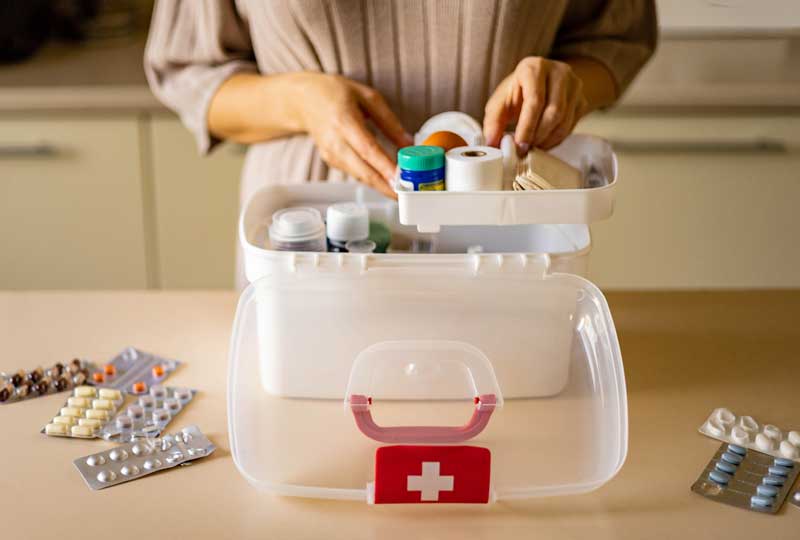Proper medicine storage can help ensure that they’ll work effectively, and can help prevent poisoning accidents.
If you are like most people, your go-to medicine storage is probably a bathroom cabinet. But did you know that the heat and moisture from your shower, bath and sink can damage your medicine, causing it to become less potent? Pills and capsules are easily damaged by heat and moisture, and aspirin pills can break down into vinegar and salicylic acid, which irritates the stomach.
“If your medicine becomes damaged, it could make you sick,” said Dr. Jennifer Hale, pharmacy director of clinical services at Monroe Carell Jr. Children’s Hospital at Vanderbilt. “Do not take medicine that has changed color, texture or smell, even if it has not expired. In addition, if pills stick together, are harder or softer than normal, or are cracked or chipped you should not take them. If in doubt, check with a pharmacist.”
How to store your medicine
Always store your medicines in a cool, dry place away from direct light. A dresser drawer or a kitchen cabinet away from a child’s reach and away from the sink, stove or other hot appliances are some of the best places to store medication. The Centers for Disease Control and Prevention also suggests that you always keep medicine in its original container and take the cotton ball out of the bottle, as the cotton ball pulls moisture into the bottle. Ask your pharmacist about any specific medicine storage instructions.
Dr. Hale also suggests these tips for storing medicine when traveling:
- If you are traveling by car with medicine, do not keep it in the glove compartment. Medicine can get too hot, cold or even wet.
- When traveling by airplane, keep your medicine in your carry-on luggage, in the original packaging.
- Always travel with a list of your medications and how you take them.
- If you have diabetes, you should ask your provider for a letter explaining that you have diabetes and providing a list of all your supplies. You are allowed to carry your medicine, blood glucose meter and lancet device on a plane.
Medicine storage to prevent accidental poisonings
Poisoning is a much larger health problem than has generally been recognized, and it continues across the entire lifespan. According to the Tennessee Poison Control Center, a Vanderbilt University Medical Center program, poisoning continues to be the leading cause of injury death for all residents in Tennessee, surpassing motor vehicle crashes. “Make sure to store medications in a locked area out of reach of children,” Dr. Hale said. “Children are at higher risk of adverse events if they take a medication, or a dose not intended for them.”
The U.S. Food and Drug Administration website has the following advice for getting rid of medicines you no longer need to store:
- Check the expiration date on your medicine. Throw out medicines that are out of date.
- Do not keep old or unused medicine around. According to the Centers for Disease Control and Prevention, about 50,000 young children end up in emergency rooms each year because they got into medicines while an adult wasn’t looking. These emergency visits can be prevented by always putting every medicine up and away and out of children’s reach and sight every time you use it and disposing of unwanted medicines promptly.
- Do not flush your medicine down the toilet. This is bad for the water supply.
- To throw away medicine in the trash, first mix your medicine with something that ruins it, such as coffee grounds or kitty litter. Put the entire mixture in a sealed plastic bag.
- You can also bring unused medicines to your pharmacist.
- Use community “drug give back” programs if they are available.
Visit their website to learn how to dispose of unused medicines and read more about how to properly dispose of medicine from Vanderbilt’s My Southern Health.
In addition to always storing medicines properly, it is wise to be prepared in case of an emergency.
- Call your poison control center at 800.222.1222 right away if you think someone might have gotten into a medicine or vitamin, even if you are not completely sure.
- Program the Poison Help number into your home and cell phones so you will have it when you need it.

